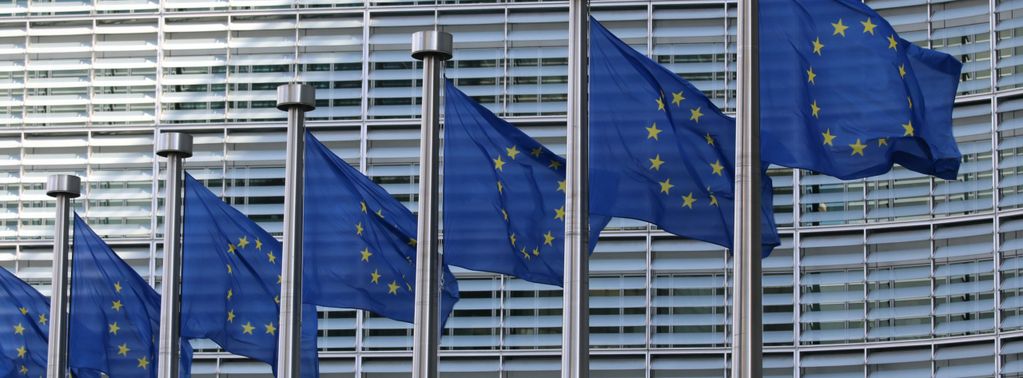
UITP, ETF, CER Joint Statement on the upcoming EU economic governance reform
The final adoption of the revamped EU economic governance reform is imminent
This week, the European Parliament will vote in plenary on the inter-institutional agreement reached with the Council, back in February this year, on a regulation on the effective coordination of economic policies and multilateral budgetary surveillance.
With this in view, the ETF, UITP and CER join many other key European players and call on the EU Institutions to ensure that the evolution of these rules allows for the necessary development and investment in rail and urban public transport, two key sectors that stand at the core of reaching climate neutrality in transport.
Discover the full statement here or continue reading below
We remind that, to this regard, in its 2019 Green Deal Communication, the European Commission had acknowledged transport as being accountable for a quarter of the EU’s greenhouse gas emissions, admitting that a 90% reduction in transport emissions was needed by 2050.
A year later, the Commission set ambitious targets to drastically reduce transport emissions, in both freight and passenger transport. These are:
- Shifting a substantial part of the 75% of inland freight carried by road, to rail and inland waterways; consequently, rail freight traffic would increase by 50% by 2030 and double by 2050
- Doubling high-speed passenger rail traffic across Europe by 2030
- Achieving a healthier and more sustainable interurban and urban mobility by extending the reach of the sustainable urban mobility plans by 2030, and having them include new zero-emission and zero road fatalities goals
In the past 4 years both rail and urban public transport sectors have responded promptly and adapted fast to challenges raised by the pandemic and the energy crisis. This stood as a proof of strong commitment by companies and transport workers alike, to guarantee day-to day mobility for European citizens, and goods.
No matter how resilient the two sectors have proved to be, they face an increasing gap between costs and revenues at a crucial time when they need to scale up investment.
The application of new EU fiscal rules should not contribute to deepen the investment deficits built over the years, exacerbate reductions in transport service, with subsequent depreciation of working conditions and irreversible impacts on worker shortages.
This is why we welcome the provisions in Article 11 (Content and requirements of the national medium-term fiscal-structural plan) where the Regulation on the effective coordination of economic policies and multilateral budgetary surveillance states that “The national medium-term fiscal-structural plan shall: […] explain how it will ensure the delivery of investment and reforms responding to the main challenges identified within the European Semester […] and explain how it will address the […] fair green and digital transition, including consistency with the European Climate Law […] [the] social and economic resilience, including the European Pillar of Social Rights [and] energy security”.
Rail and urban public transport have a major role to play, in fact, to contribute to these three Union priorities.
The ETF, UITP and CER affirm therefore that now is the time for robust, longer-term, investments into the real and growing customer needs of rail and urban public transport sectors. To achieve this, the focus should be on assets, quality of jobs, operational safety, infrastructure and modernisation of rolling stock and fleets.
The ETF, UITP and CER further reiterate that rail and urban public transport are the most sustainable, affordable and democratic transport modes, and provide the most solid foundation for the climate-related objectives set by the EU policy makers.
We thus call for the European Commission, Parliament and national governments to prove consistency in their goals and policies, and to offer guarantees that rail and local public transport will receive the needed financial support to contribute fully to the decarbonisation of transport. This will entail planning and allocating long-term substantial funding in infrastructure, operational safety, in measures meant to retain staff in the sectors, in securing good working conditions and job stability.
We equally ask for a political commitment, backed by appropriate and sufficient public funding, for high quality collective transport resourced with high-quality transport jobs.
We call for EU and national policy makers to fully engage with social partners from rail and urban public transport in monitoring deployment of funds dedicated to the environmental and just transition in transport. To this end, we would like to point out the limited official information available on the progress of the implementation of the Recovery instrument across many Member States, and hence call to increase transparency and improve data sharing with all interested stakeholders.
We equally call for policy makers to foster and support social impact assessments at sectoral, regional and company level in anticipation of the effects of the green transition on employment, equality, skills and training needs, and occupational health and safety. This will help social partners to better address and plan for a just transition, while improving job
attractiveness.
Signed on 22 April 2024

Contact
UITP













